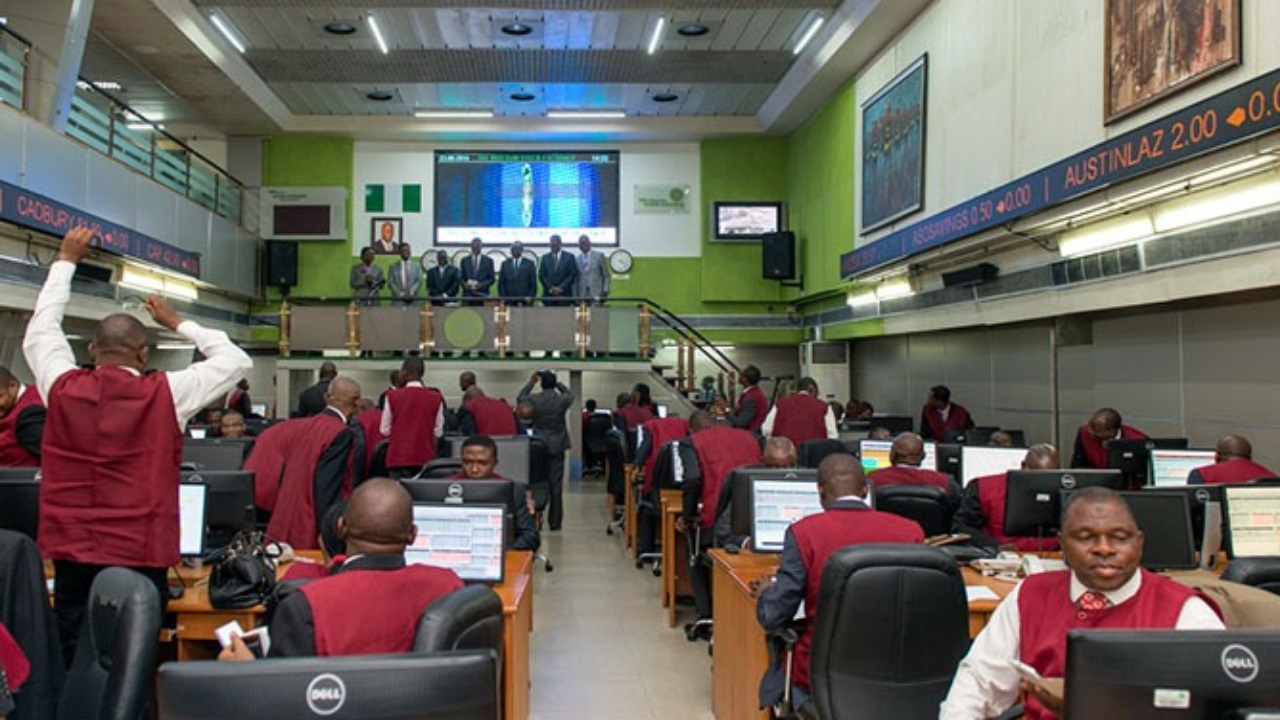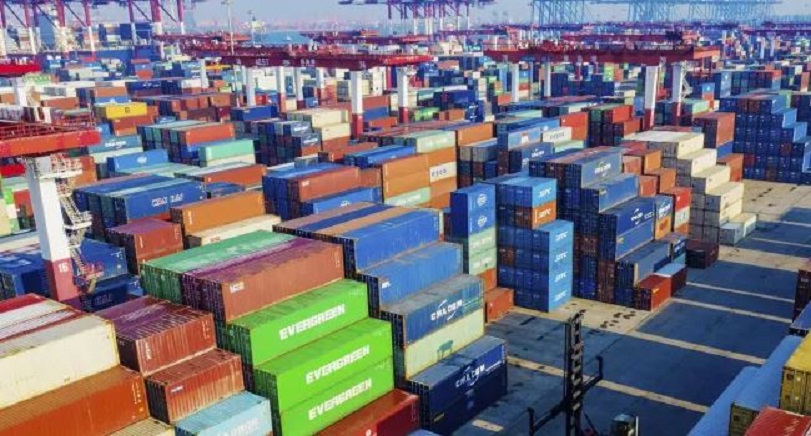General
Nigeria Customs to Step Up Efforts to Curb Cross-Border Petrol Smuggling

By Adedapo Adesanya
The Nigeria Customs Service (NCS) has vowed to permanently shut down all illegal cross-border routes used for smuggling petroleum products, particularly Premium Motor Spirit (PMS), known as petrol, out of Nigeria.
This is as it plans to complement efforts by other security agencies including the Nigerian Army, Navy, and the Nigeria Security and Civil Defence Corps in curbing the illicit trade of energy products.
This was disclosed by the National Coordinator of Operation Whirlwind (NCS) Comptroller Hussein Ejibunu, who made the announcement revealed that in a recent operation, Customs officials seized 849 kegs of PMS, each containing 25 liters, along with two Mazda 626 vehicles used for cross-border transportation.
Mr Ejibunu, during a press briefing at the Customs Training College in Ikeja, Lagos, said the total value of the seized items, based on the Nigerian National Petroleum Corporation (NNPC) Limited retail price, was estimated at N30.225 million.
According to him, this marked the seventh successful operation in the southwest region under the ongoing crackdown by Operation Whirlwind.
“About five weeks ago, similar PMS products were displayed here at the college parade ground. Our operation has tightened the grip on smugglers, leaving no room for their illegal activities across the country.
“We will ensure all illegal PMS smuggling routes leading to neighbouring countries are permanently blocked,” Mr Ejibunu pledged.
He also expressed gratitude to the National Security Adviser and the Comptroller-General of Customs for their continued support.
He pledged the commitment of the NCS in continuing with the efforts, with the aim of stabilizing fuel prices and preventing artificial shortages caused by illegal smuggling.
“We are grateful to the National Security Adviser and the Comptroller-General of Customs for their continued support,” he added.
Business Post reported recently that the Nigerian Navy halted the cross-border snuggling of 20,000 litres of petrol bound for Cameroon and arrested three suspects.
General
Nigerian Bottling Company Bridges Education, Employability Gap

By Modupe Gbadeyanka
The Nigerian Bottling Company (NBC) has reaffirmed its determination to bridge the gap between education and employability in the country by sustaining its flagship Youth Empowered (YE) programme.
This initiative provides hands-on learning, real-world insights, and access to career-shaping opportunities to young Nigerians.
The 2026 edition of the scheme commenced on February 2 at the University of Lagos (UNILAG), with participants mainly young people between the ages of 16 and 35.
A statement from the organisation said this year’s rollout will expand to more tertiary institutions, including the Federal University of Technology, Akure (FUTA). This follows a successful 2025 tour that reached seven cities across the country, including Makurdi, Jos, Benin, Kaduna, Asaba, Akure, and Port Harcourt.
Participants in the 2026 programme will receive training across key modules designed to support personal, professional, and business growth, including Business Life Skills, Adaptability and Resilience, Financial Literacy, Customer Service and Communication, Sales and Negotiation Skills, and Workplace Ethics.
The sessions will also feature breakout workshops on Business Planning, Project Management, and Time Management, alongside the Director’s Grant Pitch Competition, where participants can pitch their ideas for a chance to win business funding.
In addition to skills development, NBC’s People and Culture team will be present throughout the programme to identify outstanding talent for future opportunities within the organisation, further strengthening the connection between learning, employment, and long-term career growth.
One of the participants at the UNILAG training, Waliat Adedogun, who received a cash grant through the Director’s Grant Pitch Competition to support her small business, said: “Youth Empowered gave me more than training; it gave me clarity and confidence. Winning the grant means I can finally take my business idea from a dream into something real. I now feel prepared to build, grow, and create opportunities not just for myself, but for others too.”
Since its launch in 2017, the scheme has impacted more than 70,000 young Nigerians, equipping participants with practical skills, confidence, and exposure needed to succeed in today’s dynamic workplace and entrepreneurial landscape.
This year’s programme is being delivered in collaboration with Fate Foundation as the implementing partner, with funding support from The Coca-Cola HBC Foundation.
Last year, 10 beneficiaries were selected for six-month paid internships across NBC locations in Lagos, Ibadan, Asejire, and Challawa, gaining direct industry exposure.
Additionally, three outstanding participants received sponsorship for an all-expenses-paid intensive culinary training programme and were awarded N1 million each to support the launch of their businesses.
General
INEC Fixes February 20 for 2027 Presidential, NASS Elections

By Modupe Gbadeyanka
The 2027 presidential and National Assembly elections will take place on Saturday, February 20, the Independent National Electoral Commission (INEC) has revealed.
In a notice for the 2027 general polls issued on Friday, the electoral umpire also disclosed that the governorship and state assembly elections for next year would be on Saturday, March 6.
Speaking at a news briefing in Abuja today, the chairman of INEC, Mr Joash Amupitan, expressed the readiness of the commission to conduct the polls next year, which is 12 months away.
The timetable issued by the organisation for the polls comes when the federal parliament has yet to transmit the amended electoral bill to President Bola Tinubu for assent.
This week, the Senate passed the electoral bill, reducing the notice of elections from 360 days to 180 days, while the transmission of results was mandated with a proviso.
Recall that on February 4, INEC said it was ready to go ahead with preparations for the elections despite the delay in the passage of the amended electoral law of 2022.
General
NGIC Pipeline Network to Experience 4-Day Gas Supply Shortage

By Modupe Gbadeyanka
The pipeline network of the NNPC Gas Infrastructure Company Limited (NGIC) will witness a temporary reduction in gas supply for four days.
This information was revealed by the Chief Corporate Communications Officer of the Nigerian National Petroleum Company (NNPC) Limited, Mr Andy Odeh, in a statement on Thursday night.
A key supplier of gas into the NGIC pipeline network is Seplat Energy Plc, a joint venture partner of the state-owned oil agency.
It was disclosed that the facility would undergo routine maintenance from Thursday. February 12 to Sunday, February 15, 2026.
The NNPC stated that, “This planned activity forms part of standard industry safety and asset integrity protocols designed to ensure the continued reliability, efficiency, and safe operation of critical gas infrastructure.”
“Periodic maintenance of this nature is essential to sustain optimal system performance, strengthen operational resilience, and minimise the risk of unplanned outages,” it added.
“During the four-day maintenance period, there will be a temporary reduction in gas supply into the NGIC pipeline network. As a result, some power generation companies reliant on this supply may experience reduced gas availability, which could modestly impact electricity generation levels within the timeframe.
“NNPC Ltd and Seplat Energy are working closely to ensure that the maintenance is executed safely and completed as scheduled. In parallel, NNPC Gas Marketing Limited (NGML) is engaging alternative gas suppliers to mitigate anticipated supply gaps and maintain stability across the network,” the statement further said.
“Upon completion of the maintenance exercise, full gas supply into the NGIC system is expected to resume promptly, enabling affected power generation companies to return to normal operations,” it concluded.
-

 Feature/OPED6 years ago
Feature/OPED6 years agoDavos was Different this year
-
Travel/Tourism10 years ago
Lagos Seals Western Lodge Hotel In Ikorodu
-

 Showbiz3 years ago
Showbiz3 years agoEstranged Lover Releases Videos of Empress Njamah Bathing
-

 Banking8 years ago
Banking8 years agoSort Codes of GTBank Branches in Nigeria
-

 Economy3 years ago
Economy3 years agoSubsidy Removal: CNG at N130 Per Litre Cheaper Than Petrol—IPMAN
-

 Banking3 years ago
Banking3 years agoSort Codes of UBA Branches in Nigeria
-

 Banking3 years ago
Banking3 years agoFirst Bank Announces Planned Downtime
-

 Sports3 years ago
Sports3 years agoHighest Paid Nigerian Footballer – How Much Do Nigerian Footballers Earn

















